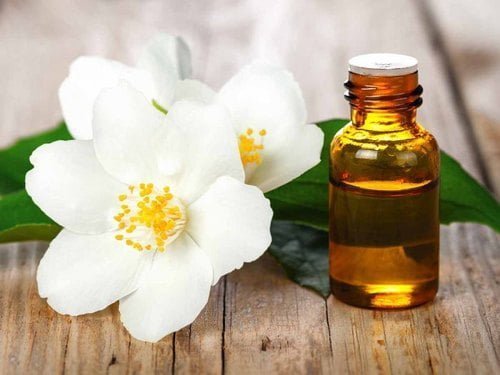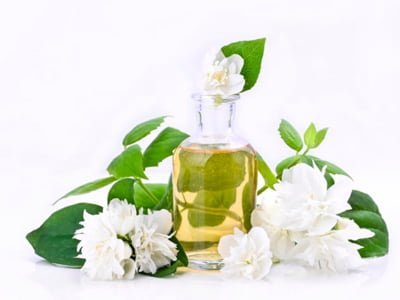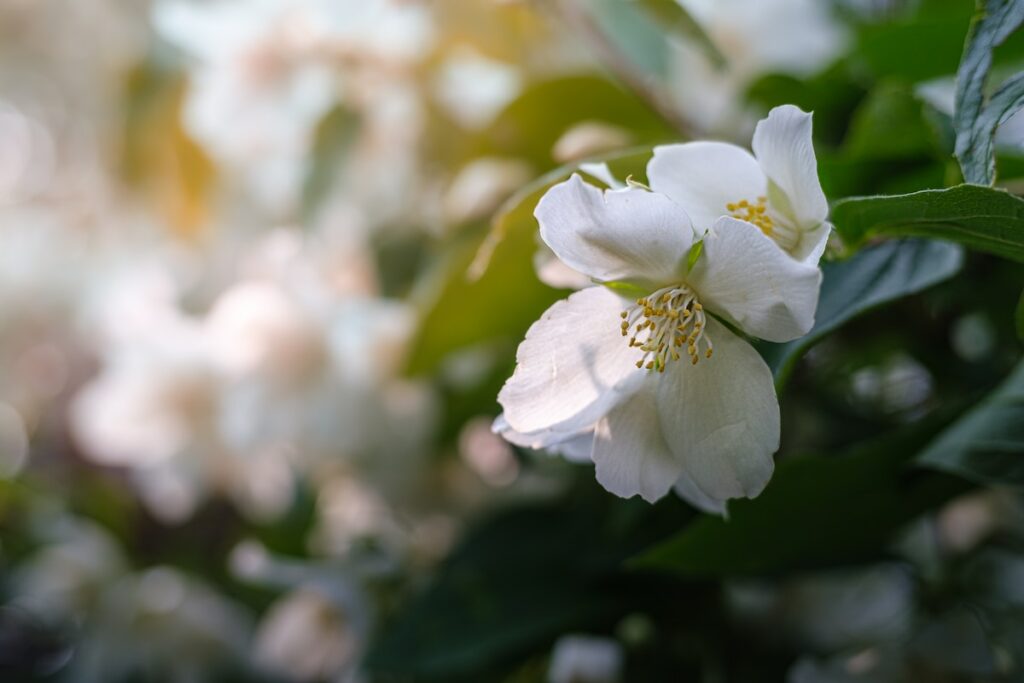Jasmine Oil on Brain Waves and Emotions- a Gateway to Tranquillity

Throughout history, humanity’s fascination with aromas and their profound influence on emotional states has been a constant topic of exploration for scientists and aromatherapy practitioners. Among the aromatic treasures that have captivated civilizations for centuries, jasmine stands as a fragrant jewel, renowned for its ability to evoke a spectrum of positive emotions.

A Brief History of Jasmine Oil
Jasmine’s aromatic spectrum traces back thousands of years, leaving its fragrant imprint on numerous cultures. Originating in the Himalayan region, this delicate flower first enticed the ancient Egyptians, who employed it in perfumery and religious ceremonies. The Greeks, too, celebrated jasmine as a symbol of purity and love, incorporating it into both daily life and sacred rituals.
Jasmine continued to add value to civilizations along the Silk Road, finding its way to the hearts of the Chinese, Indian, and Persian cultures. It was in Persia that the art of distillation was honed, giving rise to jasmine essential oil—an elixir that embodied the essence of this mesmerizing flower.


Jasmine Aromatherapy: A Scientific Journey
In the world of scents and sensations, this fragrance is an gateway to calm and tranquillity. Jasmine, with its delicate white blossoms and enchanting aroma, has long been celebrated for its captivating presence. But what if we told you that this fragrant marvel can influence the brain wave activities and emotions?
In recent years, jasmine has attracted the curiosity of scientists and researchers who gathered evidence of the emotional impact of jasmine on human physiology and behaviours. Studies have indicated that jasmine possesses the remarkable ability to induce relaxation, soothe frayed nerves, and stimulate positive emotions. Scientific research has provided experiments where individuals exposed to jasmine aromas exhibited reduced stress levels, lower heart rates, and elevated feelings of calmness.
These physiological responses are mirrored by observable behavioural changes, with subjects demonstrating improved mood and heightened alertness after inhaling jasmine-scented air. The statistics further substantiate jasmine’s positive influence on our emotions. In controlled settings, participants exposed to jasmine aromatherapy consistently reported reduced anxiety and enhanced feelings of wellbeing.
Statistical analyses reveal that jasmine’s impact on emotional states is both measurable and significant, making it a compelling choice for those seeking emotional balance and tranquillity.
Essential Oils for Diffusers for Home, Diffuser Oil 18x10mL, Tea Tree, Lavender, Eucalyptus, Frankincense, Lemon Grass, Rosemary, Orange, Mint, Lemon, Cinnamon, Bergamot, Ylang-Ylang, Grapefruit, etc.
Jasmine Oil on Brain Waves and Emotions
As we explore the pages of history and scientific interest, jasmine emerges not only as a fragrant symbol of beauty but as a potent modulator of human emotions. Its journey from ancient civilizations to modern laboratories showcases the enduring aspect of its emotional impact.
In an age where emotional well-being holds the key to inner peace, jasmine aromatherapy is a healthy choice for relaxation, stimulation, and inner harmony. With its rich history and scientifically validated emotional benefits, jasmine continues to be a holistic solution in the emotional landscapes of humanity.
Picture a moonlit garden, the air heavy with the scent of jasmine. This floral treasure, cherished in cultures around the world, has whispered its secrets through the ages. While its fragrance has always been associated with romance and elegance, recent scientific inquiries are peeling back the layers of its enigmatic allure.
Scientific exploration has taken a curious turn, leading researchers to investigate the effects of jasmine oil inhalation on brain wave activities and emotions. Can the simple act of breathing in this captivating aroma truly have an impact on the inner workings of our minds? This is the question that has sparked a journey into the aromatic alchemy of jasmine.

Jasmine Oil- A Fragrant Gateway to Tranquillity
While exploring the tantalizing possibility that jasmine oil can do more than delight the senses, we discovered countless studies confirming that there is a complex relationship between this fragrance and our mental and emotional states, revealing a path that might just lead us into the serenity we’ve long sought after. Could this floral essence be a fragrant gateway to tranquillity?
Women aged between 20 and 60 years participated in a study involving ten aromatic oils: lavender, rosemary, rose, eucalyptus, jasmine, geranium, chamomile, clary sage, thyme, and peppermint. During the experiment, the participants inhaled the aroma for 90 seconds using a glass funnel attached to their lab apron, positioned 10 cm below their nose, while an activated pump facilitated the scent delivery. Measurements were taken of electroencephalography (EEG), blood pressure, and pulse rate both before and during the inhalation of these aroma oils.
The results revealed significant changes in the brain’s relaxation and resting state, as indicated by the relative alpha (RA) power spectra. When inhaling lavender, rosemary, eucalyptus, jasmine, chamomile, clary sage, and thyme oils, there was a notable increase in the RA power spectra compared to the baseline before olfactory stimulation. Additionally, the ratio of alpha to high beta (RAHB), a metric reflecting brain stability and relaxation, experienced significant increases when participants inhaled rosemary, jasmine, clary sage, and peppermint oils.
The relative low beta (RLB) power spectrum, indicative of brain activity in the absence of stress, significantly increased when exposed to the scents of lavender, rosemary, rose, and geranium. Furthermore, systolic blood pressure exhibited a noteworthy decrease after exposure to all ten types of aromatic oils, which strongly suggests a reduction in stress levels.
This study demonstrated that olfactory stimulation with aroma oils had a stabilizing impact on the prefrontal cortex and overall brain activity. Additionally, it led to a decrease in systolic blood pressure, highlighting the stress-reducing effects of aromatic oils. These findings underscore the potential of aromatherapy as a means to positively influence mental and physiological states.
Do you want to share your story and inspire our readers ? Know that every story is paving the way for a brighter, happier future.

- Lehrner, J., Marwinski, G., Lehr, S., Johren, P., & Deecke, L. “Ambient Odors of Orange and Lavender Reduce Anxiety and Improve Mood in a Dental Office.” 2005.
- Diego, M. A., Jones, N. A., Field, T., Hernandez-Reif, M., Schanberg, S., Kuhn, C., & McAdam, V. “Aromatherapy Positively Affects Mood, EEG Patterns of Alertness, and Math Computations.” 1998.
- Lehrner, J., Marwinski, G., Lehr, S., Johren, P., & Deecke, L. “Ambient Odors of Orange and Lavender Reduce Anxiety and Improve Mood in a Dental Office.” 2005.




